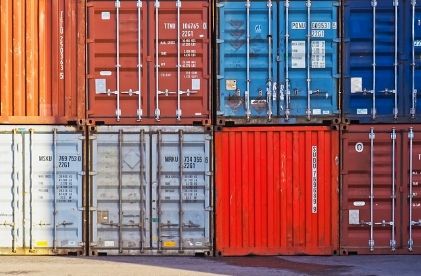What is Destination Delivery Charge (DDC)?
What is Destination Delivery Charge (DDC)?
Destination Delivery Charge (DDC) is a fee levied by carriers in international shipping to cover the costs associated with delivering cargo from the port of discharge to its final destination. It is an essential component of the overall freight cost and plays a significant role in determining the total landed cost of imported goods. DDC is commonly applied in maritime and air freight transportation and is subject to variations depending on factors such as the destination country, port infrastructure, and local regulations.

What does Destination Delivery Charge (DDC) include?
Destination Delivery Charge comprises various expenses incurred in the final leg of the shipment's journey. These expenses typically encompass:
1. Port Handling Charges: These charges cover the costs of handling cargo at the destination port, including unloading from the vessel, storage, and other related services.
2. Customs Clearance Fees: Customs clearance involves documentation processing, inspections, and duties levied by customs authorities at the destination. DDC often includes these fees, ensuring compliance with import regulations.
3. Transportation Costs: DDC may incorporate transportation expenses from the port to the final destination, whether by road, rail, or other means of inland transportation.
4. Terminal Handling Charges: Terminal handling charges pertain to the handling of cargo at the destination terminal, encompassing services such as sorting, stacking, and loading onto trucks for onward delivery.
5. Security Surcharge: In some cases, carriers impose a security surcharge as part of DDC to cover security-related expenses associated with transporting goods to the final destination.
By bundling these costs into a single charge, DDC simplifies the invoicing process for importers and provides transparency regarding the expenses involved in delivering goods to their doorstep.
What is the operational process of Destination Delivery Charge (DDC)?
The operational process of Destination Delivery Charge typically involves the following steps:
1. Quotation: Freight forwarders or carriers provide importers with a comprehensive quotation that includes DDC along with other applicable charges.
2. Shipment Booking: Upon acceptance of the quotation, the importer proceeds to book the shipment with the chosen carrier or freight forwarder.
3. Cargo Arrival: After the cargo arrives at the destination port, the carrier initiates the process of discharging the goods and handling them within the port premises.
4. Customs Clearance: The importer or their appointed customs broker completes the necessary customs clearance procedures, which may involve submitting documentation, paying duties and taxes, and undergoing inspections.
5. Inland Transportation: Once customs clearance is obtained, the cargo is transported from the port to the final destination using the selected mode of transportation, with DDC covering associated costs.
6. Delivery: The carrier or a local delivery agent delivers the goods to the importer's designated location, completing the shipping process.
Throughout this operational process, effective communication between the various stakeholders involved is crucial to ensure smooth cargo movement and timely delivery.
What are the considerations regarding Destination Delivery Charge (DDC)?
When dealing with Destination Delivery Charge, importers should keep the following considerations in mind:
1. Transparency: It is essential to obtain a clear understanding of the components included in DDC and verify whether any additional charges may apply based on specific circumstances or destination requirements.
2. Cost Optimization: Importers should explore opportunities to optimize DDC and overall freight costs by selecting efficient transportation routes, consolidating shipments, and leveraging negotiation strategies with carriers or freight forwarders.
3. Documentation Compliance: Adherence to all required documentation and regulatory requirements is paramount to avoid delays in customs clearance and potential penalties or fines.
4. Risk Management: Assessing and mitigating risks associated with transportation, including factors such as cargo loss, damage, or theft, is crucial for protecting the integrity of the supply chain and minimizing financial losses.
By addressing these considerations proactively, importers can effectively manage Destination Delivery Charge and ensure the cost-effective and timely delivery of their imported goods to the final destination.
Related articles

 WeChat of CBiBank
WeChat of CBiBank